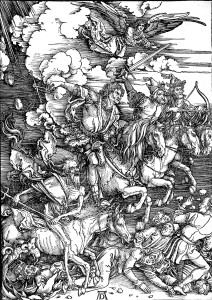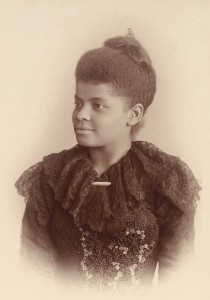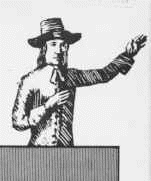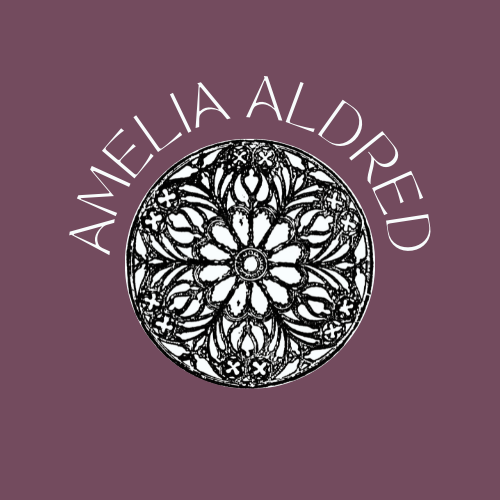Sometimes, several areas of my life intersect, Venn diagram style, and similar conversations happen across multiple communities of which I’m part. During the past six months, I’ve been watching a conversation unfold across the nonprofit, activist, and writing communities regarding how to hold ourselves and others accountable for ideals that we theoretically share, especially in regarding to calling out people and organizations who are acting inappropriately.
A while back, I read Ngọc Loan Trần’s essay, “Calling IN, a Less Disposable Way of Holding Each Other Accountable” and this week I read Asam Ahmad’s essay “A Note on Call-Out Culture” which continues a similar conversation as Trần. Both essays reminded me of the keynote speech by Ejeris Dixon at the Watching the Watcher Conference in Chicago this February, which you can listen to here.
Trần, Ahmad, and Dixon are all concerned that public calling out of racist, sexist and otherwise wrong behavior can become away to categorize people as “good” and “bad” and to dismiss the “bad people” without engaging with them to try to change their behavior. They are also concerned that by doing this, people are using the same philosophy that our broken justice system uses, in which we try to parse out “good” and “bad” people and to lock away all of the bad people. And numerous activists, writers, and social scientists have pointed out, when black people and poor people are characterized as essentially “bad” the implicit bias held against them makes it far more likely that juries, judges, police, and other agents in our justice system will condemn them at great rates and for harsher sentences.
I also read a lot of critiques of Ahmad’s essay, including one by the co-founder of Save Wiyabi, Lauren Chief Elk, who expressed outrage that anyone could compare calling out racism, sexism, etc. to the racism of our justice system and asserts that policing call-outs is another way to silence oppressed people.
In the end, I empathize with both views. Mia Mackenzie, the editor and founder of the site Trần published their essay, sums it up in her disclaimer at the end of the piece.
(Disclaimer: WHITE FOLKS: Please don’t take any of this as your okay to act a fool and expect POC to not get angry. We have EVERY RIGHT to get angry when you fuck up. And we have no obligation whatsoever to put your hurt feelings above the impact your behavior causes. This post is specifically about us calling in people who we want to be in community with, people who we have reason to trust or with whom we have common ground. It’s not a fuckery free-for-all. Thank you. )
When it comes to calling out, I like to use the “ring theory of venting” that my friend, a nurse, explained to me. In the center of the ring is the person who is experiencing the trauma most severely, the next ring are people close to the person experiencing the trauma, the third ring are people a little further away and so forth. The person at the center of the trauma, say, Martina who has breast cancer, gets to vent to everyone. Her partner, Inés, in the second circle, can vent to the third circle which includes Inés’s brother and mom, but not to Martina. At the time, care should flow inward, from the people with more distance and resources towards the people who have less. And so forth.
When it comes to social traumas, I’m rarely at the center. It’s neither productive nor kind for me to police the calling out done by people who are experiencing the trauma. Sometimes Lauren Chief Elk is exactly right, calling out publicly is the only way to make someone in power pay attention. And sometimes, people experiencing the trauma simply don’t have the emotional energy, time, relationship, and other resources to engage with the person in question. And yes, emotional discomfort is not the same as systemic racism in our justice system and no, being in a community and working in solidarity with each other does not mean we all have to get along all the time and we should avoid conflict.
I take Trần and Ahmad’s essays not as a reason to monitor other people’s call outs, but a reason to monitor my own. I’ve caught myself saying and doing things in order to publicly proclaim and perform my own moral purity. It’s not something I’m proud of and it usually comes from a place of insecurity because I know that I do hold implicit bias, that there’s a lot of information I don’t know, a lot of experiences I don’t have. The truth is, what I fear most is not the stereotypical extremist, what I fear is me. I can see an extremist coming from a mile off, I usually don’t see myself as clearly.

Furthermore, after reading Trần and Ahmad’s essays, I realized that sometimes I don’t engage with people beyond calling out, not because I don’t have the emotional distance, time, or resources, but because I just don’t know how to have that conversation and I expect it is going to be hard and uncomfortable. I was socialized to be a nice Midwestern girl, quiet and non-confrontational, and part of me believes that any conflicts will RUIN EVERYTHING FOREVER AND NOTHING WILL EVER BE GOOD AGAIN. But that’s not true.
Two historical examples that illustrate this: Ida B. Well’s call out of Frances Willard in 1894* and John Woolman’s conversations with Quaker slaveholders in the 1740s.**
In the 1890s, Ida B. Wells was crusading against lynching. Meanwhile, Frances Willard, a white feminist, suffragette, and temperance activist, was courting Southern women for her cause. In her attempt to garner support from Southern whites, Willard refused to publicly denounce lynching and even gave an interview in which she accused black men of drinking and menacing white women and children, a damning statement, given that the supposed rape of white women was one of the primary justification for lynching. Ida B. Wells asked Willard and her supporters to walk back their statements and denounce the murder of black men by lynching, but Willard did not respond.

Finally, in 1894, when Wells and Willard were both touring Great Britain as speakers, Wells called her out publicly. Ida B. Wells attended a lecture by Frances Willard and when Wells was asked of her opinion of Willard by a local newspaper, she chose to read Willard’s statements regarding the “menace” of black men. The British abolition and temperance crowd was shocked by the reveal, Willard was furious and embarrassed and responded by attacking Wells (And her friend Lady Somerset even whined to Frederick Douglass to make Ida B. Wells stop being so mean to Frances Willard….sound familiar? It’s depressing how much doesn’t change.) It was scandalous, uncomfortable, and drama-filled. But in the end, the whole affair pushed the British public to form the London Anti-Lynching Committee…and Frances Willard signed on as a member. White feminists and activists were forced to reckon with the racism in the temperance and suffrage movement and some progress was made.
In the mid-1700s, the Quakers in the United States were debating slavery. For abolitionist Quakers, one of the most divisive questions was how to handle fellow Quakers who owned slaves. Should they shun them? Should they allow them at Meeting, but refuse to let them hold office? Start meetings for abolitionists-only? Say nothing and hope they changed eventually? John Woolman, a Quaker abolitionist, chose to visit slave-holding Quakers directly and try to convince them to free their slaves. He appealed to their shared religious beliefs and tried to get them see that slave-holding was against the teachings of Jesus. During his travels, Woolman refused to participate in the slave economy. Rather than ride a horse, he walked over 200 miles, because slaves would have had to care for his horse. Rather than wear dyed clothing, which was produced by slave labor, he wore undyed homespun. When he stayed at the house of slaveholders, he made a point to pay the enslaved people who cooked for him and cleaned the house the same wage he would have paid a tavern keeper.

There were Quakers who were angry that John Woolman would even talk to sinful slave-holders and I’m sure the conversations themselves were uncomfortable and hard because there’s no easy way to tell someone that what they are doing is racist and wrong—but Woolman’s goal wasn’t just his sense of righteousness and personal comfort, his goal was to free people. And through these conversations and demonstrating that slave-holding was a choice, not an inevitable way of life, he was able to convince dozens of slave-holders to free their slaves over a hundred and twenty years before the Emancipation Proclamation. Furthermore, his writings on the subject was one of the prime documents that convinced the Pennsylvania Society of Friends to successfully lobby the State of Pennsylvania to abolish slavery.
Both Wells’ call out of Frances Willard and Woolman’s call in of Quaker slave-holders were effective and demonstrate that there is no One True Tactic to Rule Them All. All we can do is guess at what will work best in the situation at hand, push ourselves to do whatever it takes, and take care of ourselves and each other in the process as best we can.
*Thank you to to Monée Fields-White for her fabulous article on this incident in The Root.
**Thank you to Professor Michael Birkel for his scholarship on John Woolman.
***Paraphrased from The Journal of John Woolman.
